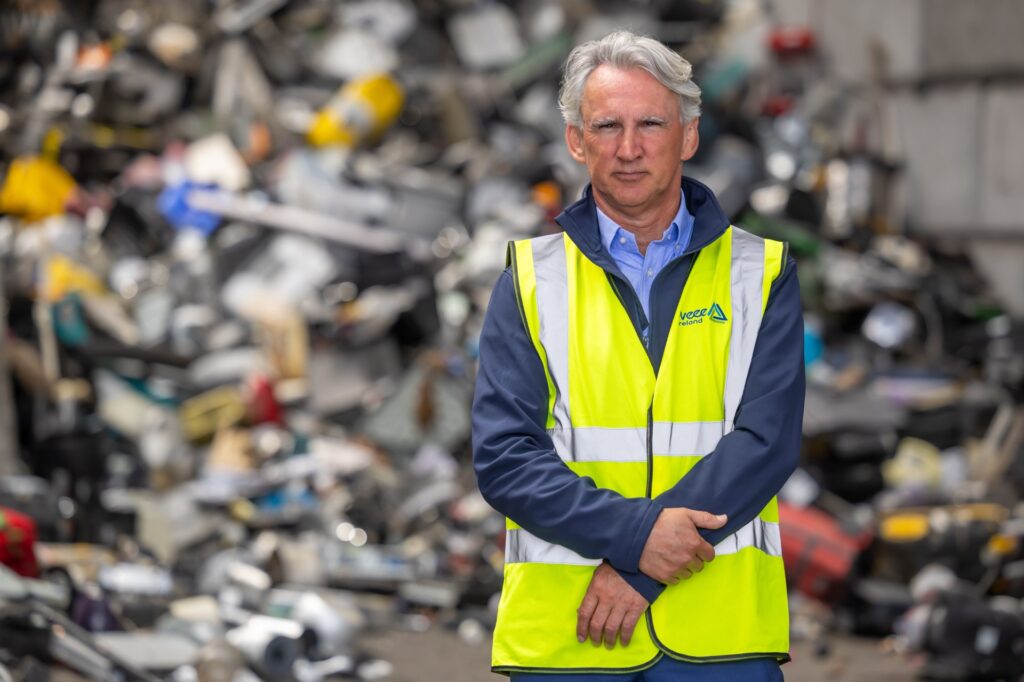WEEE Ireland is urging residents of Wexford to reconsider their approach to electronic waste, as recent data reveals that 14 million tonnes of e-waste are discarded in household bins annually.
Globally, household electronic and electrical waste reached 62 billion tonnes, averaging 29 kg per home, yet Wexford residents recycled only 10.04 kg of e-waste per person last year.
In anticipation of International E-Waste Day on October 14, the Global E-Waste Monitor 2024 highlights that nearly a quarter of e-waste ends up in regular rubbish bins.
This waste includes valuable materials such as precious metals and plastics. The report, produced by the United Nations Institute for Training and Research (UNITAR) and the International Telecommunication Union (ITU), emphasizes the need for a shift in how people perceive items like power tools, electronic toys, and mobile devices.
Leo Donovan, CEO of WEEE Ireland, stated, “Careless disposal represents a missed opportunity for recycling,” pointing out that many discarded items contain recoverable materials essential for new products.
He encourages Wexford residents to view recycling not just as disposal but as a chance to reclaim valuable resources.
The report indicates that while 29 kg of e-waste is generated per household, only 1% of critical raw material needs are currently met through recycling. This figure must rise to 25% under the new Critical Raw Materials Act for Ireland and EU member states.Research from Empathy Research for WEEE Ireland revealed that one in eight people in Ireland still throw small electrical items in their household bins, with this number increasing to one in four among younger demographics.
WEEE Ireland and the WEEE Forum are calling on the public to stop discarding broken or unwanted electronics in general waste. Pascal Leroy, Director General of the WEEE Forum, noted that the 844 million e-cigarettes disposed of last year contained enough lithium to power 15,000 electric cars.
Proper e-waste handling could potentially reduce CO2 emissions by 93 million tonnes each year—equivalent to removing 20 million cars from the road. WEEE Ireland is encouraging everyone to participate in an “e-waste hunt” to retrieve and recycle unused electronic devices cluttering homes.
Previous surveys indicate that European households typically hoard about 13 electronic products.Mr. Donovan emphasized the benefits of recycling e-waste: it conserves raw materials, reduces CO2 emissions, and prevents toxic substances from harming the environment.
He urged everyone to take responsibility and ensure that no e-waste ends up in household bins. WEEE Ireland operates numerous collection points nationwide at local authority civic amenity centres and participating retailers where consumers can drop off old electronics for free recycling.For more information on e-waste recycling and upcoming public collection events, visit WEEE Ireland’s website.

